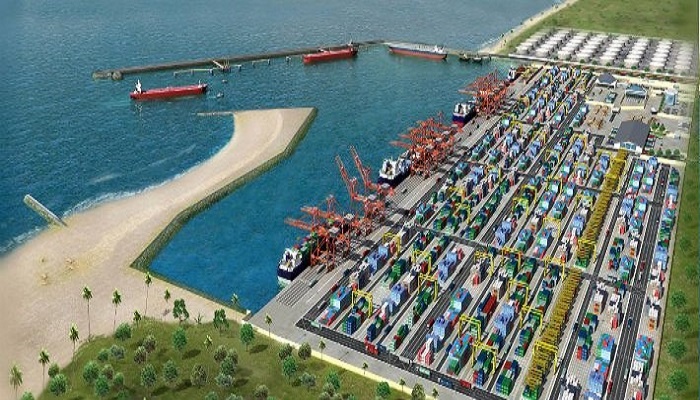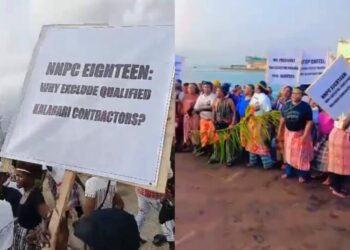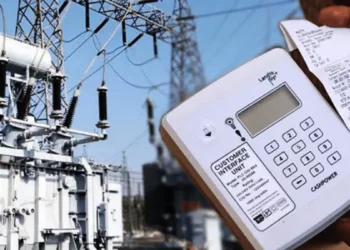The hope that the development of Lekki Deep Sea Port will solve the lingering congestion at the Apapa and Tin-Can Island seaports may have been dashed as lack of proper evacuation plans threaten the project.
The Lekki Deep Sea Port construction is near completion and will be commissioned before the end of 2022, but the $1.5 billion deep seaport project in the Free Trade Zone is without plans for an intermodal transport system necessary for seamless cargo evacuation. That remains a mirage and a source of concern for stakeholders.
When fully completed, the port, which covers 90-hectares of land, will feature three container berths, long dry bulk berths and three liquid berths, which will allow it to handle up to 2.7 million twenty-foot equivalent units (TEU) of containers per year.
This Lekki Deep Sea Port with a deeper draft of 9.5meters is expected to receive Very Large Container Carriers (VLCCs), vessels that can, hitherto, not berth at Apapa and Tin Can Island Port.
However, the ministry of transportation had said extending the rail system to Lekki Deep Sea Port and others might not be a priority now and may not be possible during the present administration.
Corroborating the transportation ministry, the Nigerian Railway Corporation (NRC) said there is no budgetary provision for railway linkage to Lekki or any other deep seaports in the 2021 budget.
Stakeholders have identified the absence of viable evacuation plans such as railway linkage to the deep-seaport or the free trade zones, alternative roads for evacuation or jetties for cargo evacuation through badges as source of concern for the multi-billion naira project.
They, however, warned that the mistakes of Apapa and Tincan ports should be avoided, adding that modern facilities should be put in place while constructing them using the world best practices and processes.
Speaking on absence of Intermodalism at the deep seaports in Nigeria, the acting president, Association of Nigerian Licensed Customs Agents (ANLCA), Kayode Farinto, said the Nigerian government is creating another Apapa-like traffic monster at Lekki
According to Farinto, to have a functional deep seaport, Nigeria must ensure all the modes of transportation are connected to forestall creating Apapa like traffic gridlock.
“We can’t have a deep seaport without an intermodal transport system. If we don’t have Intermodalism, then what we want to have in Nigeria is a theoretical deep seaport and not a pragmatic one.
“If Nigeria wants to operate real deep seaports where very large container carriers can berth then we should have rail connecting the Lekki Deep Sea Port, we should have a well-articulated highway connecting the deep seaport and badges being able to evacuate cargo out of the port seamlessly,” he said.
Farinto, however, urged the government to build a well-connected road linking the port, saying in developed countries, connectivity is the first for the government to put in place even before building a deep-seaport.
“In Nigeria, the government is building a deep seaport before linking it to rail. By now, we should have a super highway at Lekki, but what do we have? A tiny bad road leading to a deep seaport.
“We don’t have an intermodal transport system, no port development plans. What happened to our ports in ten years? Government cannot tell us, no consistency in policies. But, for now, Nigeria is not ready for deep seaports development until we are ready for intermodal development,”he added.
A lecturer at the Lagos Business School (LBS), Dr. Frank Ojadi, also bemoaned the absence of plans for inland water access and rail linkage to Lekki deep-seaport in Nigeria.
While considering the huge traffic that would be created by the deep seaport due to major projects cited in the free trade zone, he reiterated the importance of intermodalism.
According to him, deep seaports are essential because good nautical access is important to connectivity of ports.
He said, “Over the last decades, ships have rapidly become bigger and deeper. For example, the draft of the largest container ships at this moment is approximately 14.5 metres, which is deeper than what most ports can accommodate. Port depth thus becomes a competitive advantage for attracting the largest ships and a challenge for many ports that are estuaries and have no direct deep sea access.”
He added that deep seaports would create opportunities for transshipment operations, generate more employment, promote local shipping business and boost trade in the country, but certain infrastructure must be provided for it to succeed.
The Deep Sea Port was conceived to improve the overall cargo handling capacity of Nigerian ports and thereby increase Nigeria’s Gross Domestic Product (GDP). The handling capacity of ports in Nigeria is put at 60 million metric tonnes, while demand and usage is about 100 million metric tonnes.
These are expected to rise with the increasing population, urban expansion and attendant demand for more markets, thereby increasing Nigeria’s needs for better designed port facilities in tune with increased cargo traffic for the country to be globally competitive.
Also, since emphasis is shifting to larger and more economical vessels that require deeper harbour drafts, global logistics trends have made the need for deep seaports more imperative.
However, Nigeria commenced the development of Lekki Deep Sea Port in order to be a hub and maximise the enormous potentials in the sector. The port is billed to commence operations by September this year.





